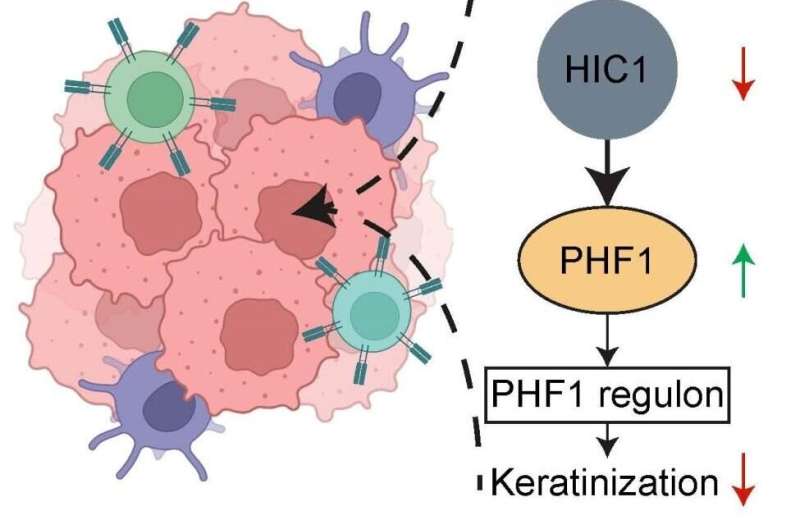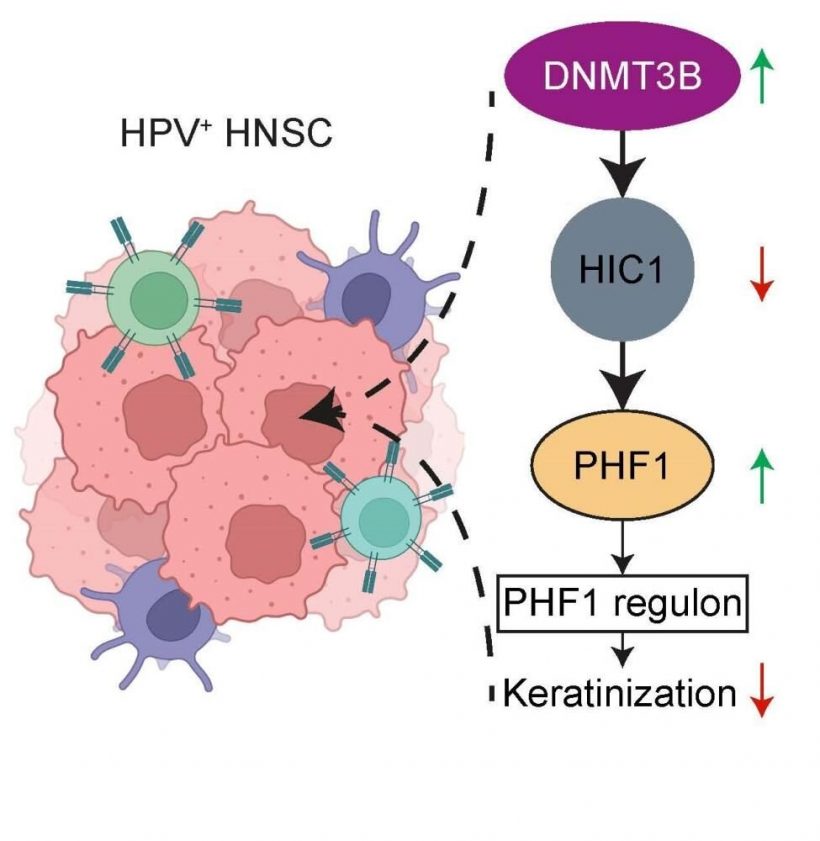
Researchers at the Francis Crick Institute and King’s College London have revealed the complex interactions between cancer and the immune cells that surround a tumor, with the potential to inform how patients will respond to immunotherapy.
In the study, published in the journal Genome Medicine, the researchers analyzed thousands of samples across 32 types of cancer to examine the way that cancer dynamically interacts with the tumor immune microenvironment (TIME), allowing the disease to flourish.
Cancer evolves within the TIME, which is sculpted by cancer cells and, in turn, sculpts the cancer genome. These dynamic interactions have a significant impact on how the cancer develops and responds to treatments such as immunotherapy. Gaining a greater understanding of cancer-immune system interaction is therefore crucial to understanding cancer biology.
The researchers focused on a class of genes called cancer drivers because, when altered, they help drive cancer. They identified 477 of these cancer drivers that interact with multiple features of the TIME, suggesting that they drive the formation of cancer by disrupting biological processes within the cell as well as interfering with the immune system.
The study also outlined the way that two distinct classes of cancer drivers, tumor suppressors and oncogenes, operate within the TIME. Tumor suppressors are genes which when inactivated, help cancer development, while oncogenes need to be activated in order to promote cancer.
The study revealed that alterations in tumor suppressors are prevalent in tumors with high immune infiltration (when immune cells enter the tumor), likely helping the tumor to escape the immune system. Oncogenes are instead prevalent in tumors with low immune infiltration, suggesting an opposite effect on the TIME.
As tumors with high levels of immune infiltration respond well to immunotherapy, this research shows that the burden of altered cancer drivers could be used as predictive biomarker of response to immunotherapy.
Professor Francesca Ciccarelli, principal group leader of the Cancer Systems Biology Laboratory at the Crick and senior author of the study, said, “Our study reveals how genetic alterations drive cancer evolution, interfering not only with processes inside the cancer cells but also with the immune system. We can exploit this knowledge to predict who will respond to cancer immunotherapy and directly interfere with these genes to increase an immune response.”
The researchers also rebuilt the entire cascade of events linking genetic alterations of specific cancer drivers to the downstream TIME modifications. They focused on head and neck cancer, a tumor type that does not respond well to immunotherapy. They developed a computational approach based on systems biology that enabled them to explain the mechanisms through which genetic drivers of head and neck cancer modify the immune system.
Hrvoje Misetic, visiting scientist at the Crick and first author of the study, said, “Our analysis uncovered links between cancer drivers and immune alterations in head and neck cancers. The mechanism driving high immune infiltration in a subset of head and neck cancers could be targeted for immunotherapy treatment.”
More information:
Hrvoje Misetic et al, Mechanistic insights into the interactions between cancer drivers and the tumour immune microenvironment, Genome Medicine (2023). DOI: 10.1186/s13073-023-01197-0
Journal information:
Genome Medicine
Source: Read Full Article
